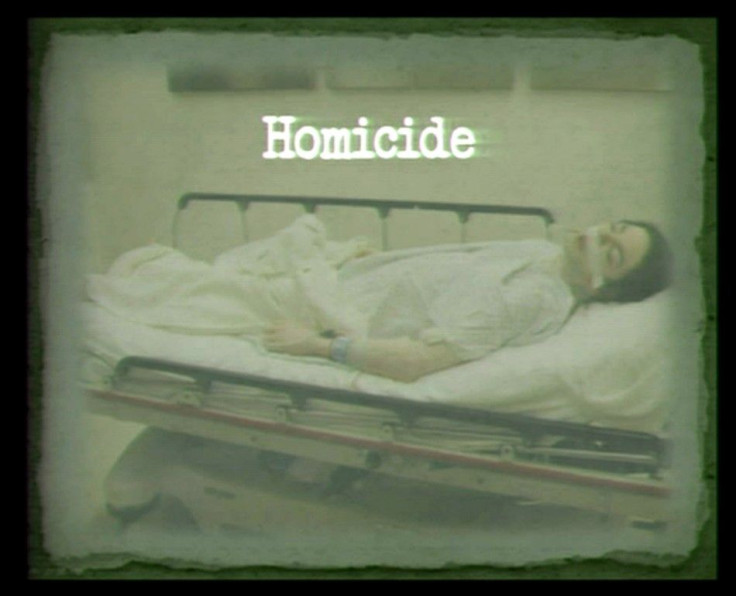Michael Jackson Trial: What Happened in the Final Moments?

As prosecutors played an incredibly sad tape of Michael Jackson's voice Tuesday, recorded just weeks before his death, coupled with a photo of his lifeless body, spectators in the Los Angeles courtroom looked pained.
The King of Pop said: We have to be phenomenal. When people leave this show, when people leave my show, I want them to say, 'I've never seen nothing like this in my life. Go. Go. I've never seen nothing like this. Go. It's amazing. He's the greatest entertainer in the world.'
Jackson's slurry audio was played at the trial of his personal physician, Dr. Conrad Murray, charged with involuntary manslaughter for giving him drugs that killed him.
Prosecutors portrayed Murray, 58, as an incompetent doctor whose gross negligence in administering propofol -- a risky drug which requires close monitoring of patient in controlled medical settings -- led to Jackson's death in 2009.
As expected, defense attorneys have claimed that the pop star caused his own death by taking a drug overdose, including propofol, after his doctor left the room.
Murray's Version of Jackson's Final Moments
Defense attorneys have argued that Murray entered Jackson's room around midday June 25, 2009, to find him not breathing, but with a faint pulse. Murray's attempts to revive Jackson by administering CPR didn't succeed, which prompted him to call for help. Since there was no landline phone available, Murray couldn't call 911, and he claims that he couldn't use his cell phone because he did not know the exact address. Murray claims to have run downstairs and yelled for help and asked a chef to get security to Jackson's room. He claims the security placed the 911 call within 30 minutes of him finding Jackson lying motionless.
Paramedics reached Jackson's home within five minutes of the 911 call, at 12:26 p.m., and performed CPR for 42 minutes at the house. Murray's attorney has claimed that Jackson had a pulse when he was being shifted to the hospital. But a Los Angeles Fire Department official has stated that the paramedics found Jackson in full cardiac arrest.
Doctors' attempts to resuscitate Jackson, for more than an hour, didn't succeed, and he was pronounced dead at 2:26 p.m.
Prosecutors Paint Murray as an Irresponsible Physician
Prosecutor David Walgren argued that while working for Jackson, Murray shipped more than four gallons of propofol, misusing it against medical practices, for a fee of $150,000 a month.
There was no doctor-patient relationship, Walgren said. ... What existed here was an employer-employee relationship. He was not working for the health of Michael Jackson. Dr. Murray was working for a fee of $150,000.
Medical practitioners have said that administering an extremely dangerous anesthetic like propofol as a sleeping aid, outside clinical settings, was rare and should be considered negligence.
Propofol is an agent that requires very close monitoring and is often limited only to use by anesthesiologists, Dr. Richard Page, head of cardiology at the University of Washington Medical Center in Seattle, was quoted by ABC News. The main issue with this agent is respiratory depression, which in turn could cause cardiac arrest.
It is a very dangerous drug, said Dr. Brian Olshansky, a cardiologist at the University of Iowa who said he often uses it to place patients in deep sedation for certain heart procedures. It is not for sleep. I cannot imagine anyone would use this outside a very regulated environment such as the availability of emergency respiratory equipment.
The defense attorneys have claimed that propofol -- typically injected intravenously -- was found in Jackson's stomach, since he consumed it without Murray administering it.
Ed Chernoff, the defense attorney, claimed that Jackson swallowed a high enough dose of sedative lorazepam in the morning of his death to put six people to sleep.
Surprisingly, Chernoff added that it was Jackson's addiction to propofol which made him crave for drug, since Murray had stopped administering it after two months of regular use.
He said Jackson was in the third day of a weaning-off process but couldn't overcome the craving.
Michael Jackson started begging. He couldn't understand why he wasn't sleeping.... When Michael Jackson told Dr. Murray 'I have to sleep. They will cancel my performance,' he meant it, Chernoff was quoted as saying by the Detroit Free Press.
© Copyright IBTimes 2024. All rights reserved.












